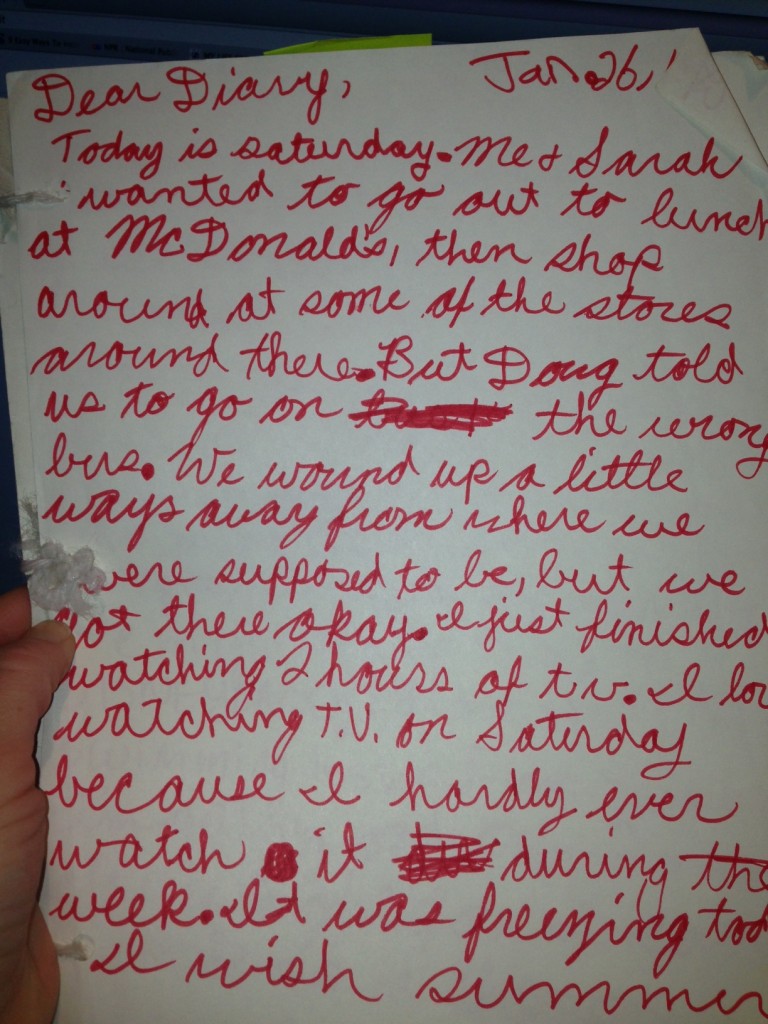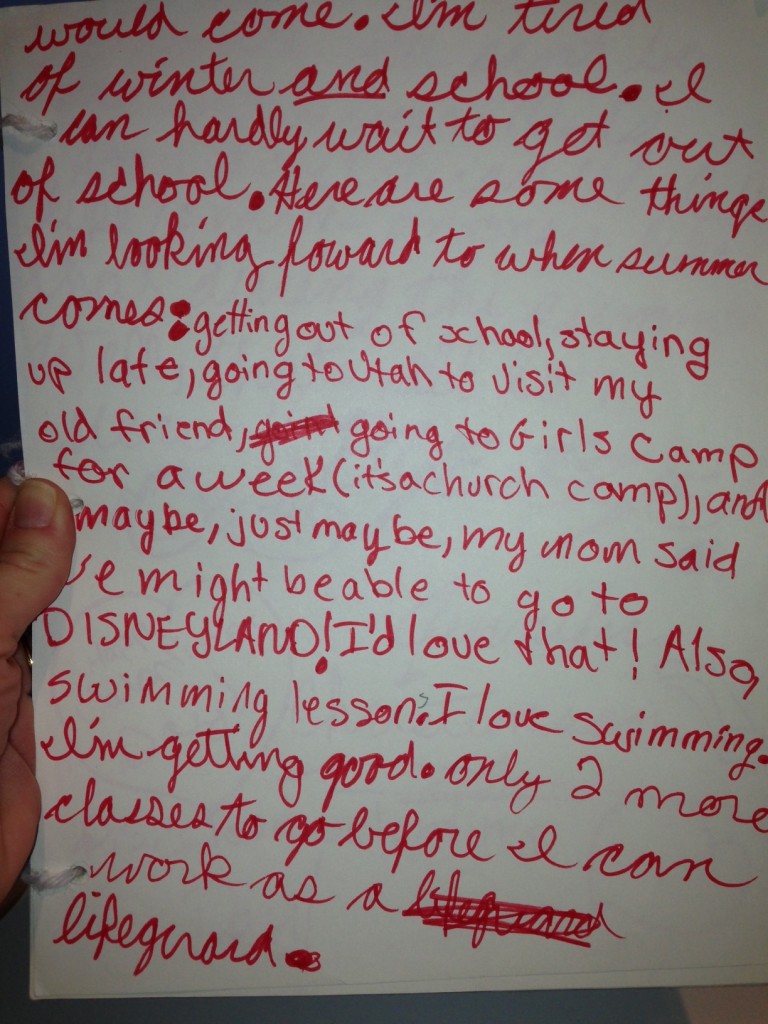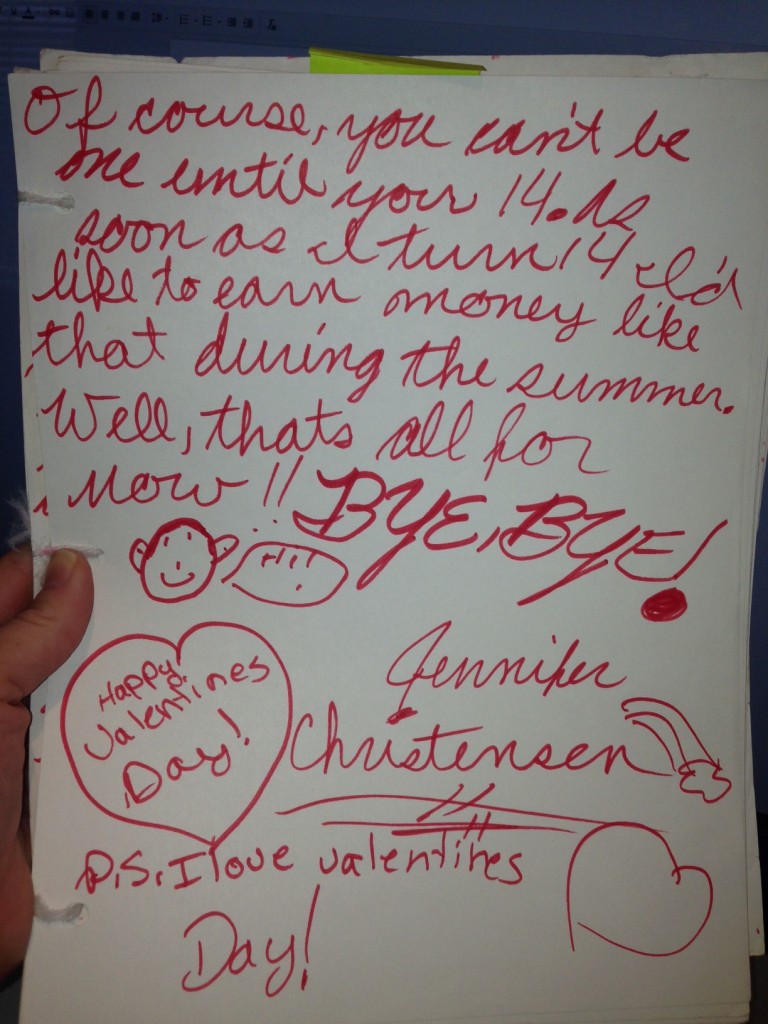Cleaning my closet this weekend, I came across my very first journal. I was eleven years old and I made it myself with copy paper, a hole punch, and some yarn. Here’s a sample entry of A Day in the Life:
Pretty spicy stuff. I spent five lovely minutes on Saturday reading this and remembering why childhood was grand. For all the angst of tweendom, an overarching simplicity still reigned during those years. When one’s deepest thoughts can be followed with a rainbow-cloud picture, a heart, and a monkey-man (?), not to mention an impressive autograph, you know that Life Was Good. And yes, these drawings were the standard signature for every single one of my journal entries in this collection. Not only were my thoughts deep, my art was consistent. (And no, I was not “getting good” at swimming, I was trying to pass Level 3 at the public pool. And no, I do not believe I only watched TV on Saturdays. And yes, my mom used to let me and my friends ride the public bus by ourselves, all over town. The ’80s ruled.)
I was a happy kid and it was a happy time, and I say
[sociallocker id=”9134″]
hooray for journals. Did you keep one? Do you keep one? If you don’t, you should. Do it for five minutes a week online; you’ll be surprised by how much gets recorded in a year. I know journals were once kept to teach our descendents about our everyday lives, but thanks to the constant documentation offered by the digital era, I don’t think that’s the real reason for journaling anymore. I think the real for journaling–or any kind of writing–is to find out what you think about things: books, people, food, your kids, your faith, your struggle with your faith, politics, family, life, love and, of course, how you can’t wait for summer. You write to discover your opinions, and you write to discover yourself. Your thoughts deserve a voice that no one hears but you, free from self-consciousness, free from critique. Taking time to write your thoughts down, you’re paying them the respect they deserve. And that’s a big ‘ole step closer to respecting yourself.
There is one problem with snapshotting our thought processes, however, and that is that you have to answer for them later. Your brain droppings then may come back to haunt you now. Refer to above images for case and point: Shouldn’t I have been a little, um, smarter for being in the sixth-grade? A little savvier, a little more mature, a little less drawing-rainbows-and-hearts-and-monkey-men after everything? And let’s not even get started on my handwriting. (What, for the love, was that?) The innocence of youth is one thing, but these sound like the ramblings of a third-grader. Shoot. I guess I’m finally caught in the decade of lies I’ve been telling my own kids about how “bright” I was at their age–and how, therefore, they should be “bright” as well. (It was a patently deceptive parenting strategy, but all I could come up with at the time.)
The upside? If I was three years behind in maturity and articulation then, maybe I’m still three years behind today. Which means, by my calculations, that you’re actually reading the blog of a young, vivacious thirty-seven (not forty) year old woman. And that kind of youth means I can still sign this post
with love, hearts, rainbows, and monkey-men,
Jennifer Christensen (pretend that’s in fancy cursive)
BYE BYE!
p.s. I (still) love Valentine’s Day.
[/sociallocker]


